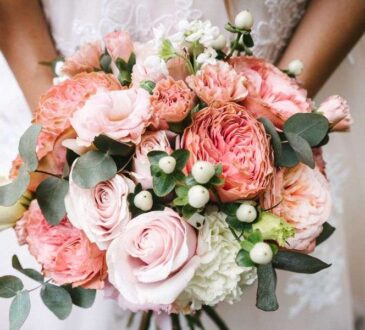
In the hush of modern life, the tea ceremony Singapore experience is a rare offering—a measured ritual that slows the pace, awakens the senses, and gathers people in the quiet dignity of shared presence. Amid glass towers and digital speed, this centuries-old tradition is being lovingly preserved and reinvented by event organisers who recognise the poetry of stillness.
The Rise of Tea Culture in Singapore
Singapore has long been a cultural crossroads, and its tea scene reflects a beautiful fusion of Chinese, Japanese, Peranakan, and contemporary influences. From traditional Chinese tea houses in Chinatown to sleek Japanese tea ateliers in Tanjong Pagar, the city has cultivated a vibrant, multi-layered tea culture that continues to grow. In fact, according to a 2023 report by Euromonitor, tea consumption in Singapore has increased by 12% over the past five years, signalling a renewed appreciation for mindful beverages and wellness-driven experiences.
In this context, the tea ceremony emerges not just as a cultural artefact, but as a living, breathing art form—one increasingly woven into modern events, corporate functions, and private celebrations.
What Is a Tea Ceremony and Why Does It Matter Today?
A tea ceremony is more than a beverage service. Rooted in Chinese Gongfu and Japanese Chanoyu traditions, it is a choreographed expression of hospitality, harmony, and aesthetic discipline. Every movement—pouring, smelling, tasting—is intentional. Every element—ceramic cup, bamboo scoop, silk cloth—has meaning.
In today’s high-octane environment, the appeal of the tea ritual lies in its ability to:
- Cultivate presence and mindfulness
- Honour tradition and cultural heritage
- Create an immersive, sensory-rich experience
- Offer an elegant alternative to conventional event formats
As Anne Boyer once wrote, “Beauty lives inside the slow and the careful.” The tea ceremony, in all its delicate nuances, reminds us of this truth.
Integrating Tea Ceremonies into Events in Singapore
Whether you’re organising a product launch, wellness retreat, wedding, or corporate gala, a tea ceremony brings an air of refinement and emotional resonance that few other elements can match.
Event planners in Singapore are increasingly incorporating these ceremonies into their offerings. Here’s how they’re doing it:
- Wedding Tea Ceremonies: A popular choice among Chinese-Singaporean couples, these ceremonies are held to honour the family elders. The ritual is often performed before the reception and includes offering tea to parents and receiving blessings in return.
- Corporate Events: Companies are booking tea masters for team-building sessions or client appreciation events, blending tradition with wellness.
- Luxury Private Gatherings: Tea rituals add a touch of understated sophistication to birthdays, anniversaries, or cultural evenings.
There are also bespoke experiences available, such as pairing teas with music or poetry, or hosting the ceremony in unique venues like heritage shophouses or rooftop gardens.
Types of Tea Ceremonies Available in Singapore
There’s a rich array of ceremonial styles to choose from, each offering its own atmosphere and cultural depth:
- Chinese Gongfu Cha: A precise, intense form of tea-making that uses small teapots and multiple infusions to draw out the tea’s full character.
- Japanese Chanoyu (Way of Tea): A meditative ritual using matcha, carried out with Zen-inspired aesthetics and tools.
- Taiwanese Tea Tastings: Emphasises aroma and terroir, often featuring rare oolong and high-mountain teas.
- Modern Interpretations: Some organisers are blending traditional techniques with modern storytelling, minimalistic design, and even tech-infused presentations.
Top Venues and Providers for Tea Ceremonies in Singapore
Here are a few leading organisers and venues offering tea ceremony experiences in Singapore:
- Tea Chapter(Neil Road): One of Singapore’s oldest tea houses, specialising in Gongfu-style tea ceremonies.
- The Camellia: A boutique tea studio offering immersive Japanese-style tea rituals.
- Yixing Xuan Teahouse: A family-run business that also provides workshops and live demonstrations for events.
- Chaji: A modern experiential company that brings curated tea ceremonies to hotels and corporate spaces.
Each offers customisation based on group size, budget, and cultural theme.
Why Host a Tea Ceremony at Your Next Event?
In a world oversaturated with noise and spectacle, the tea ceremony offers a moment of poetry, depth, and sensory peace. Hosting one is not just about showcasing culture; it’s about inviting people to feel something real.
Here’s what makes it powerful:
- Deep Engagement: Guests remember how a moment made them feel. The stillness and intimacy of a tea ritual stay with them.
- Elegant Simplicity: A counterpoint to over-designed events. Less clutter, more meaning.
- Cultural Value: Especially in multicultural Singapore, it resonates with heritage while remaining accessible to international audiences.
Tips for Planning a Tea Ceremony Event
- Consider the Space: Look for serene, minimalist environments that echo the contemplative nature of tea.
- Choose the Right Tea Master: Their presence and storytelling elevate the ritual beyond performance.
- Don’t Rush: Build in time for silence, observation, and sipping.
- Educate Your Guests: A short introduction to the history and symbolism adds dimension to the experience.
Final Thoughts: A Ceremony for the Future
In a city that often races to the future, tea ceremonies remind us to return to the present. They are intimate rituals with infinite room for connection, between people, senses, and centuries. For event organisers seeking something profound, something remembered, this tradition is not a relic of the past, but a portal to timelessness.
And in the quiet swirl of steam rising from a cup, guests will find themselves part of a story much older than the skyline outside.
As more people seek intentional, culturally rich experiences, it’s no surprise that the tea ceremony Singapore offering is becoming the soul of modern events.



